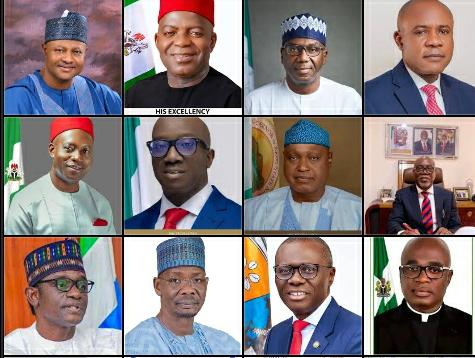Disparities among states towards implementation of new minimum wage
By Victor Itodo ABUH
The new national minimum wage of ₦70,000, introduced by President Bola Tinubu in July 2024, was expected to alleviate the financial struggles of Nigerian workers amidst rising inflation. However, the roll-out of this policy has been greeted with delays and inconsistencies across states, highlighting the country’s fiscal dissimilarities and governance challenges.
While some states have embraced the wage increase with enthusiasm, others have struggled to comply. Lagos State set an example by exceeding the federal benchmark and offering ₦85,000, along with Rivers State. Similarly, Bayelsa, Akwa Ibom, Oyo, Niger and Enugu States have adopted ₦80,000, signalling their financial capacity and commitment to improving workers’ welfare.
On the other hand, states like Kogi and Kaduna approved ₦72,000 with Kano and Gombe giving their workers ₦71,000 respectively.
States like Abia, Adamawa, Jigawa, Borno, Edo, Kwara, Nasarawa, Taraba, Yobe, Ekiti, Plateau and the Federal Capital Territory endorsed federal government-approved ₦70,000.
Other states like Delta and Ogun tried their best with slightly higher wages, such as ₦77,000, while Ondo, Benue and Ebonyi are paying ₦73,000 and ₦75,000 respectively.
In stark contrast, states like Zamfara, Cross River, and Osun are still struggling with the logistics of implementation. Zamfara, for example, is addressing issues of ghost workers and rising insecurity, resulting in delayed progress. Cross River and Osun are locked in negotiations with labour unions.
Alarmingly, some states were unable to fully adopt the previous ₦30,000 minimum wage, highlighting systemic financial challenges.
The Nigeria Labour Congress (NLC) has expressed dissatisfaction with states lagging. The union has announced a potential nationwide strike starting on December 1, 2024, targeting states that fail to meet the November implementation deadline. According to NLC President, Joe Ajaero, the delays are not only illegal but also a betrayal of the workers’ trust and rights. The union has called for industrial action and public mobilisation to pressure non-compliant states.
Read also: President Tinubu signs new Minimum Wage Bill into law
The uneven adoption of the new wage underscores deep fiscal inequalities among Nigerian states. Wealthier states like Lagos and Rivers can afford to go beyond the federal mandate, while less financially stable states struggle with basic compliance. This disparity raises questions about the broader economic and governance frameworks that underpin Nigeria’s federal system.
Experts have suggested cost-cutting measures in governance as a solution to enable all states to meet the wage demands. Despite the challenges, the new minimum wage remains a critical step toward improving living standards for millions of Nigerian workers. However, its success will depend on the collective efforts of federal and state governments to address structural inefficiencies and ensure timely implementation across the country.
As the December deadline approaches, the coming weeks will test the resolve of state governments and labour unions alike, as Nigerian workers await the promised financial relief to cope with the current economic hardship accompanied by rising inflation.
Follow the Neptune Prime channel on WhatsApp:
Do you have breaking news, interview request, opinion, suggestion, or want your event covered? Email us at neptuneprime2233@gmail.com





